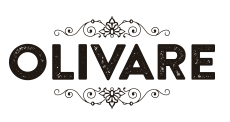International society of sports nutrition
We have all battled days when you just don’t have it. The key is to remind yourself of the reason why you showed up to the gym in the first place. We all have goals that we set out on a journey to accomplish and sometimes there are roadblocks that jump in our way preventing us from staying the course https://parcelllabs.com. Here are some keys to live by.
CHECK WITH A QUALIFIED HEALTHCARE professional before using this product, or any dietary supplement, if you are under the age of 18 or if you have any know or suspected medical condition(s) and/or are taking any prescription or OTC medication(s) and/or if you are pregnant or nursing. Discontinue use two weeks prior to surgery. Discontinue use and consult your health care professional if you experience any reaction to this product. Contains caffeine. Too much caffeine may cause irritability,This product is labelled to United States standards and may differ from similar products sold elsewhere in its ingredients, labeling and allergen warnings
What about the creatine optimizers? Beast doesn’t really provide reasons as to why they’re so good at optimizing creatine but most of them, like the banaba leaf, chromium, and cinnamon, are linked to lower blood sugar and/or better insulin sensitivity.
Sports nutrition database
Hong Kong is a densely populated city with a low incidence and mortality of coronavirus disease 2019 (COVID-19). The city imposed different levels of social distancing including, the closure of sports venues a…
Athletes with food allergies or intolerances tend to avoid certain foods to reduce the risk of an allergic reaction, or to minimize the development of reactions associated with, for example, gastrointestinal disorders (heartburn, bloating, diarrhea, cramps, nausea, and vomiting) during exercise . Gastrointestinal problems impair performance or subsequent recovery and up to 30%-50% of athletes (mostly endurance athletes) face such complaints Following intense exercise, especially with hypohydration, the decrease of mesenteric blood flow is considered the main symptom of the development of gastrointestinal issues. Since the severity of gastrointestinal upset affects performance and overall competitive results, post-exercise mesenteric blood flow holds a key position regarding the food choice as much before as during the competition. Nutrition should ensure rapid gastric emptying and absorption of water and nutrients, as well as maintaining adequate internal vascular perfusion. It has been shown, that athletes frequently change their diet and food preferences before a competition to avoid gastrointestinal discomfort .
Acute capsaicinoid and capsinoid supplementation has endurance and resistance exercise benefits; however, if these short-term performance benefits translate into chronic benefits when combined with resistance …
Increasing nitric oxide bioavailability may induce physiological effects that enhance endurance exercise performance. This review sought to evaluate the performance effects of consuming foods containing compou…
The gut microbiota constitutes a dynamic microbial system constantly challenged by environmental conditions, including physical exercise. Limited human studies suggest that exercise could play a beneficial rol…

Sports nutrition degree
This special webinar features two professors alongside several students, providing an inside look at the EdD and PhD dissertation process and dissertation defense. You’ll gain invaluable insights and hear firsthand experiences from current doctoral students, successful graduates, and knowledgeable staff, all committed to guiding and supporting aspiring kinesiology doctoral candidates like you.
Consider joining professional networking groups; attend conferences and workshops. These experiences and networking with other professionals may eventually help you land your first job in sports nutrition. Connect with fellow sports dietitians, but also build relationships with strength coaches, athletic trainers, physical therapists, and the many other health professionals that work with athletes in some capacity.
For example, consider attending sports nutrition and exercise conferences or other industry events while you’re still in school. This can be an excellent way to start networking with industry professionals and making valuable connections that may lead to work opportunities down the road.
Being a registered dietitian does require you to complete 75 continuing education units every 5 years, but you may need to go beyond those units to stay current in the dynamic field of sports nutrition. Many sports dietitians pursue master’s degrees in nutrition, exercise science, or a related field. Or you may choose to complete certifications in personal training, exercise physiology, or related fields.
The versatility of a PhD or EdD in Kinesiology with a concentration in Sports Nutrition opens the door to several career paths. Graduates of this program are well-prepared to take on leadership roles in a variety of exercise science settings, including:
Once you have been a registered dietitian for a minimum of two years and have accumulated 2,000 practice hours in sports nutrition, you can apply to become a certified sports dietitian from the CDR. To receive the Certified Specialist in Sports Dietetics (CSSD) you must pass a board exam that covers a variety of sports nutrition-related topics. Examination specifications include but are not limited to energy metabolism, fueling for training and competition, fluid and electrolyte balance, sports foods and supplements, clinical sports nutrition (disordered eating, energy availability and balance, weight management, special populations), and nutrition administration.
